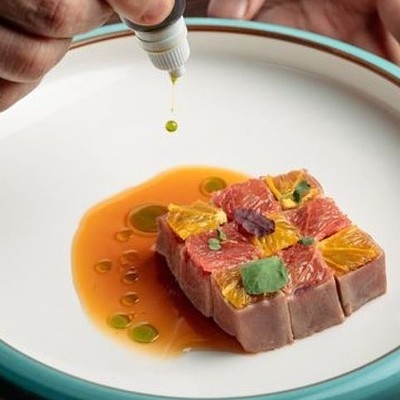That's because the 250 new entries include these 11 food-based entries:
- bibimbap
- California roll
- Callery pear
- choux pastry
- cordon bleu
- cross contamination
- farmers market
- froyo
- IPA
- Saigon cinnamon
- sriracha
A staff of about 30 full-time lexicographers catalog the American language, monitoring words of all kinds, all the time.
As for entries such as sriracha or cordon bleu, which seem as if they'd be listed in the dictionary already, Brewster said, "A word can seem ubiquitous to people who pay attention to a particular field, but my grandma in Long Island doesn't know sriracha. The words we're entering don't always seem obvious. We aren't always running the hot new terminology."
They are however, always assessing it. The Merriam-Webster describes its new words as a "snapshot of how vocabularies evolve and expand," and with this list — with these new food entries including words of Korean, Vietnamese, Chinese, Japanese and French origin — it looks like the English language is becoming much more inclusive of the cultures that help to define it.







